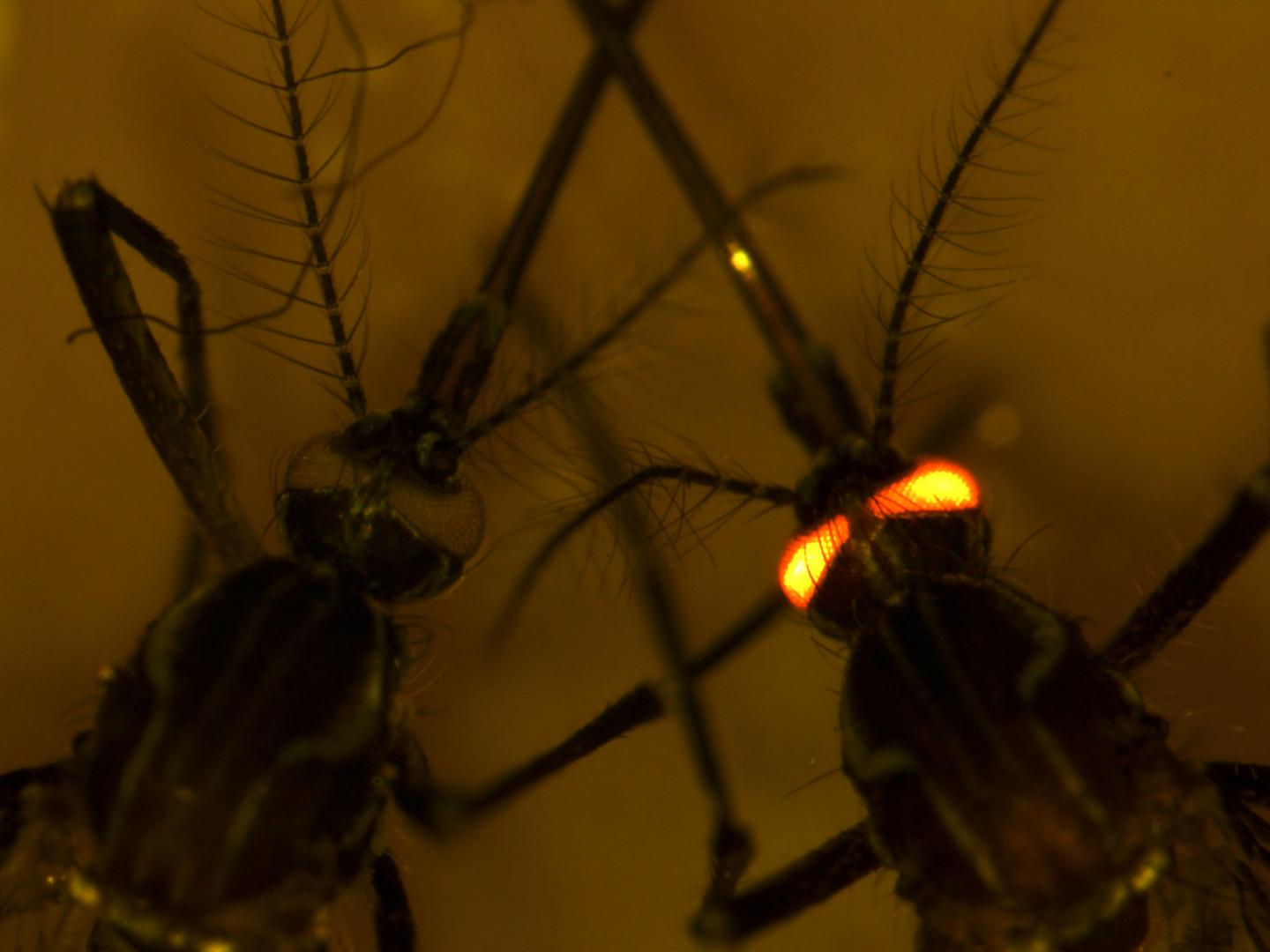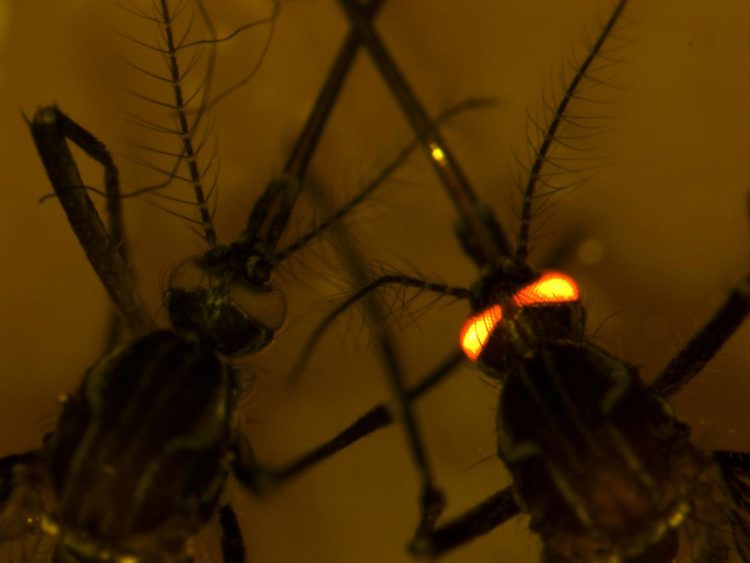
Credit: CSIRO
Scientists from Australia’s national science agency, CSIRO, and the University of California San Diego have engineered the first breed of genetically modified mosquitoes resistant to spreading all four types of the dengue virus.
Dengue infects more than 390 million people every year.
Typical symptoms include severe fever, headaches and muscle aches, with severe forms of the disease leading to haemorrhage, shock and even death.CSIRO Senior Research Scientist Dr Prasad Paradkar said the dengue virus was causing an epidemic in tropical and subtropical regions worldwide, with large outbreaks currently occurring in Bangladesh, Pakistan, Sri Lanka and the Philippines.
“There is a pressing global demand for effective strategies to control the mosquitoes that spread the dengue virus, as there are currently no known treatments and the vaccine that is available is only partially effective,” Dr Paradkar said.
“In this study we used recent advances in genetic engineering technologies to successfully genetically modify a mosquito, the Aedes aegypti, with reduced ability to acquire and transmit the dengue virus.
“This is the first engineered approach that targets all four dengue types, which is crucial for effective disease suppression.
“Mosquito-transmitted viruses are expected to climb over the coming years, which is why CSIRO is focussed on developing new ways to help solve this global challenge.”There have been previous attempts to synthetically engineer dengue-carrying mosquito populations to make them resistant to the virus, however these approaches had limited success due to their ability to only target one or two of the four major dengue types.
Incidences of dengue have increased dramatically in recent years, with more than half of the world’s population now at risk of infection.
Global economic losses as a result of dengue are currently estimated to be $40 billion a year.
University of California San Diego Associate Professor and study co-author Omar Akbari said this development means that in the foreseeable future there may be viable genetic approaches to controlling dengue virus in the field, which could limit human suffering and mortality.
“This breakthrough work also has the potential to have broader impacts on controlling other mosquito-transmitted viruses,” Associate Professor Akbari said.
“We are already in the early stages of testing methods to simultaneously neutralise mosquitoes against dengue and a suite of other viruses such as Zika, yellow fever and chikungunya.”
The published research paper can be found in medical journal PLOS Pathogens, Thursday 16 January 2020.
The mosquitoes were tested in the quarantined insectary at the Australian Animal Health Laboratory in Geelong, CSIRO’s national biocontainment facility designed to allow scientific research into dangerous infectious agents.
###
Media Contact
Sian Stringer
[email protected]
61-459-890-423





